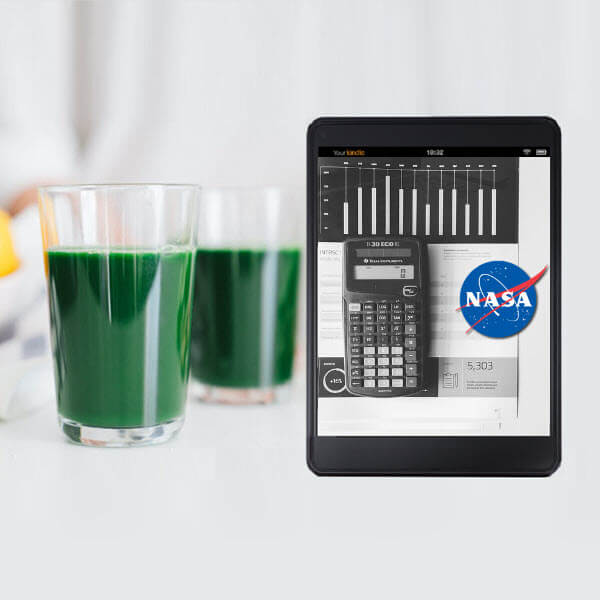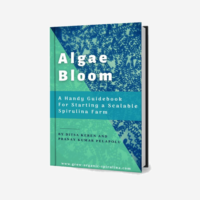Description
Did you know that NASA was one of the first modern organization to realize the benefits of spirulina? Way back in the 1960s, they started researching ways to cultivate this amazing superfood and even explored using human waste to help it grow. And guess what? They discovered that spirulina is perfect for long-term space travel because it provides almost all of an astronaut’s dietary needs and requires very few resources. So if you’re interested in growing spirulina under artificial conditions and do it the NASA way, this formula is one you need to know!
Why we created this calculator?
Spirulina is a delicate organism than can be affected by even small changes in the climate, air quality, and nutrients in the water. But don’t worry – we’ve got you covered.
We’ve developed a user-friendly calculator to help you figure out exactly how much of each nutrient you need to add at each stage of the algae’s lifecycle based NASA’s feeding formula and preparation method.
No need to struggle with scientific jargon – our calculator will make it easy. Get growing with confidence today!
Get all our calculators in a bundle to experiment with different methods and find the one (or more) that suit you best.
How to use NASA’s calculator?
After completing the payment, you’ll be redirected to your account dashboard where you can get started. Head over to the membership area and look for the link to the Nasa calculator
Along with some general instructions, you’ll see a calculator where you can enter the volume of your spirulina tank, pond, or bioreactor, and get a precise recipe for making the NASA’s culturing medium by yourself!
What you will find on this guide
- A complete list of the nutrients used in the formula, with links to further information on each of them
- A feeding calculator for the primary growth stage, based on the water volume
- A feeding calculator for after each harvest, based on the weight of spirulina harvested
- 2 Formulas for the preparation of liquid solutions that are added in the mix
- General background and history of NASA’s formula










Reviews
There are no reviews yet.